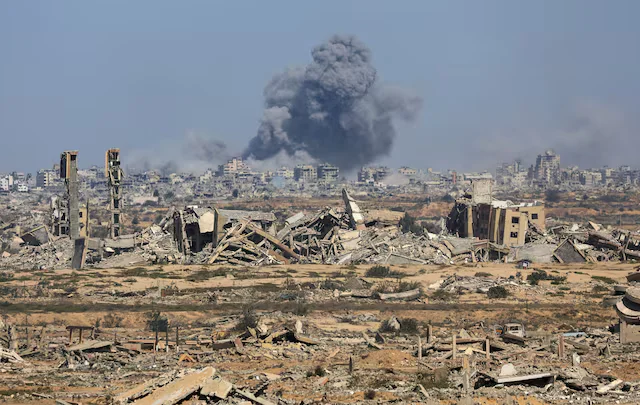In a surprising development, Hamas has accepted significant portions of United States President Donald Trump’s 20-point peace plan for Gaza to halt Israel’s nearly two-year-long campaign in the besieged enclave. While the group has called for further negotiations on some aspects, most notably the question of disarmament, it has expressed readiness to exchange captives, step back from governance, and transfer administrative control of Gaza to a Palestinian-led technocratic body with Arab and Islamic backing.

Trump’s Directive and Israeli Response
President Trump responded by urging Israel to “immediately stop bombing Gaza,” describing Hamas as prepared for “a lasting peace.” Following this, Israeli media reported that the government instructed its military to begin implementing the first stage of Trump’s proposal, including a reduction in offensive operations. Though a drone strike on a Gaza tent resulted in new casualties, the first since Trump’s directive, the broader scale of bombardment has eased.
Pakistan’s Voice for Gaza
Prime Minister Shehbaz Sharif hailed the development as a “welcome step,” noting Pakistan’s consistent support for the Palestinian cause and praising the diplomatic efforts of Qatar, Saudi Arabia, the UAE, Türkiye, Jordan, Egypt, and Indonesia, whose leaders met with President Trump on the sidelines of the UN General Assembly. “The statement issued by Hamas creates a window for a ceasefire and ensures peace that we must not allow to close again,” Sharif wrote, reaffirming Pakistan’s commitment to working with regional and international partners for an enduring peace in Palestine.
From Battlefield to Negotiating Table
This shift marks a crucial turning point. For years, Israel’s declared war objective has been the removal of Hamas from governance in Gaza. Now, Hamas itself has signaled a willingness to relinquish power and recast its role within a broader Palestinian national framework. By separating civilian administration from political authority, the movement is stepping back from direct governance, while reserving its space in the political struggle. In doing so, Hamas has effectively moved the battle for Gaza’s future from the battlefield to the negotiating table.
Regional and International Mediation
Mediators, particularly Qatar and Egypt, have welcomed this response and resumed efforts alongside the US to secure progress. The United Nations Secretary-General Antonio Guterres has urged all parties to seize the opportunity to end the suffering in Gaza. The momentum lies with diplomacy, and failure to act decisively now would confirm the worst suspicions about the war’s true aims.
The Imperative of an Immediate Halt
The imperative is clear: a halt to the bombing is essential to create the field conditions necessary for prisoner exchanges and humanitarian relief. Should Israel choose escalation over dialogue at this juncture, it would squander a once-in-a-generation opportunity to secure the release of captives, stabilize Gaza, and lay the groundwork for a technocratic administration aligned with regional consensus. The responsibility would rest not on Hamas, but on those unwilling to embrace peace when it was within reach.
A Defining Moment
History will remember this moment. Trump’s blunt call to halt the bombardment has fixed the spotlight on where accountability lies. This is no longer about military victory but about the choice between peace and perpetual war. An enduring truce is within grasp. The international community must ensure that this opportunity is not wasted.



